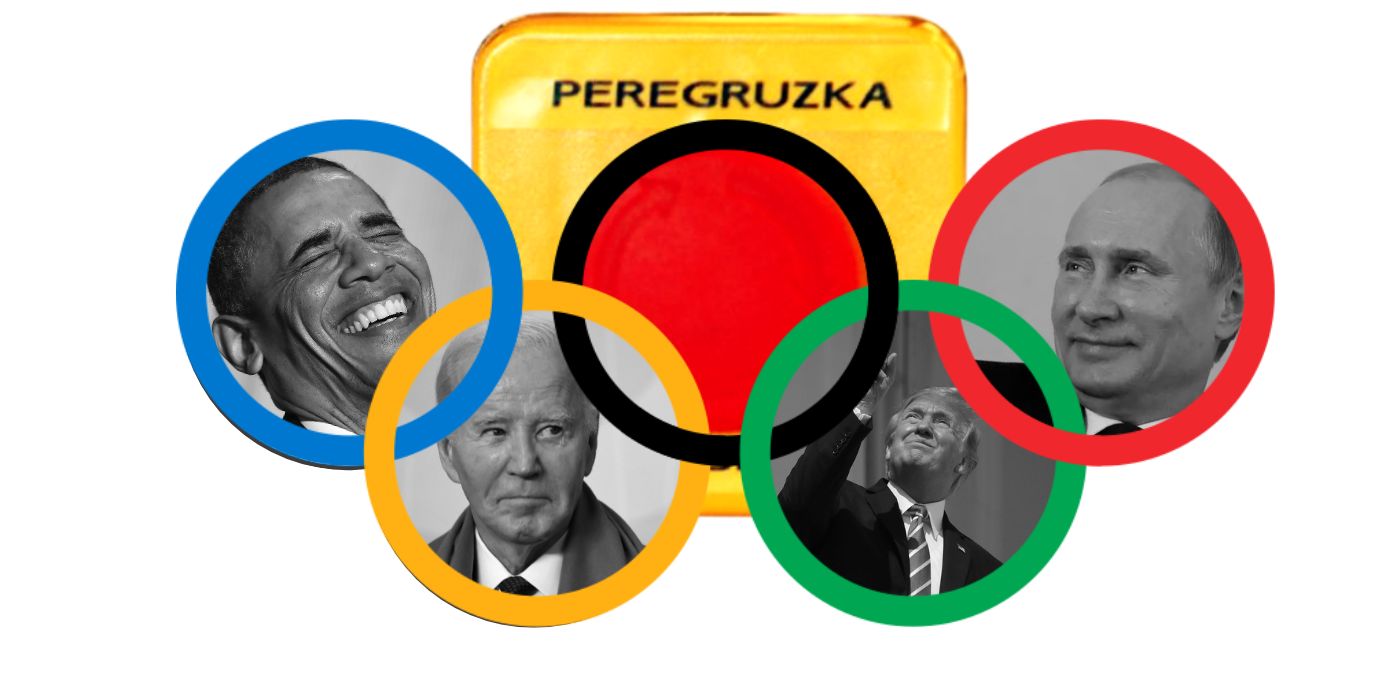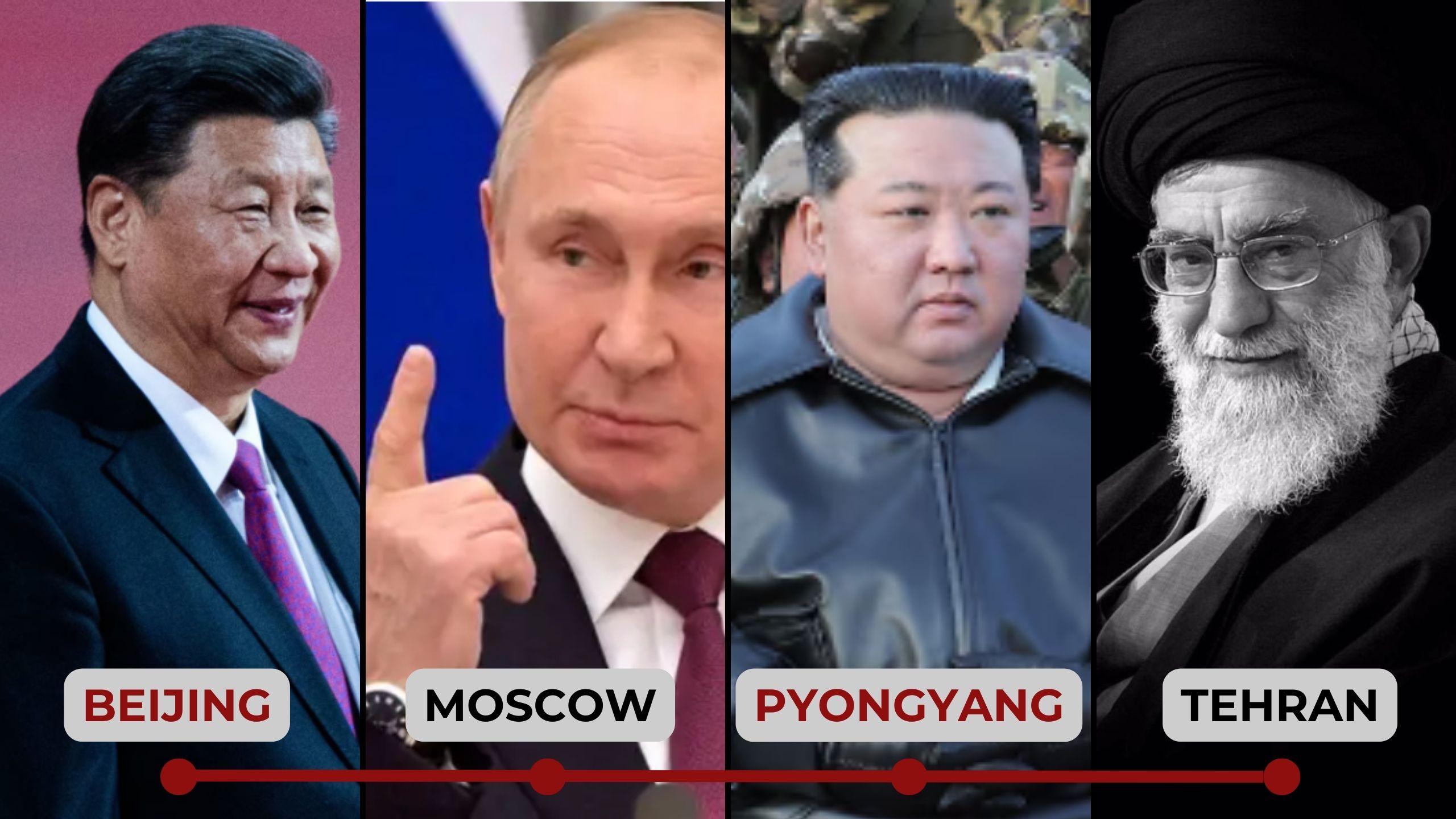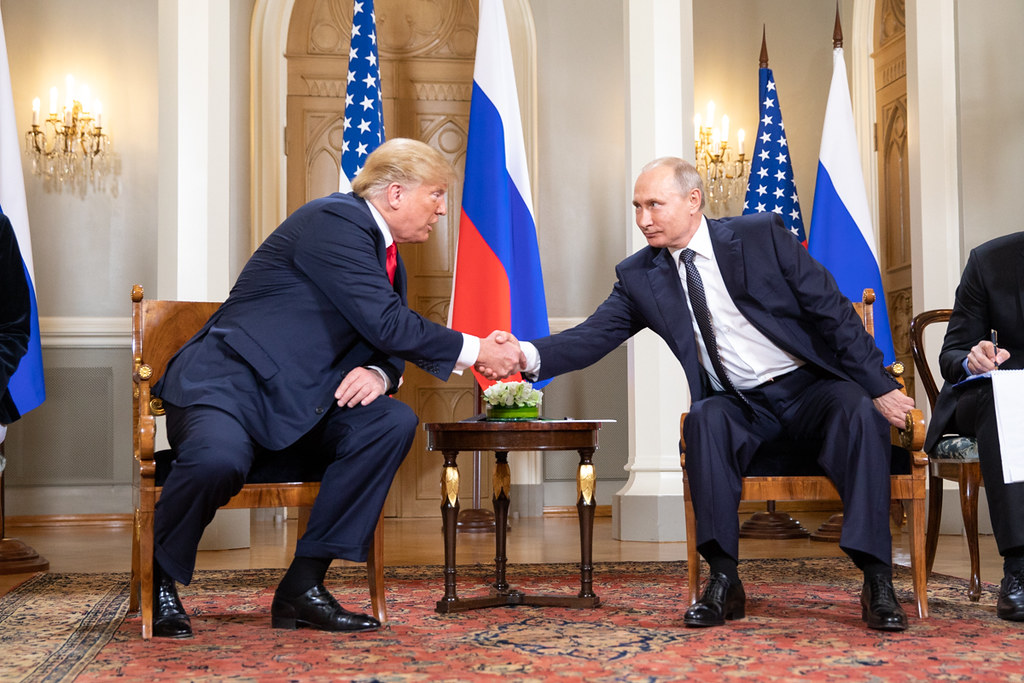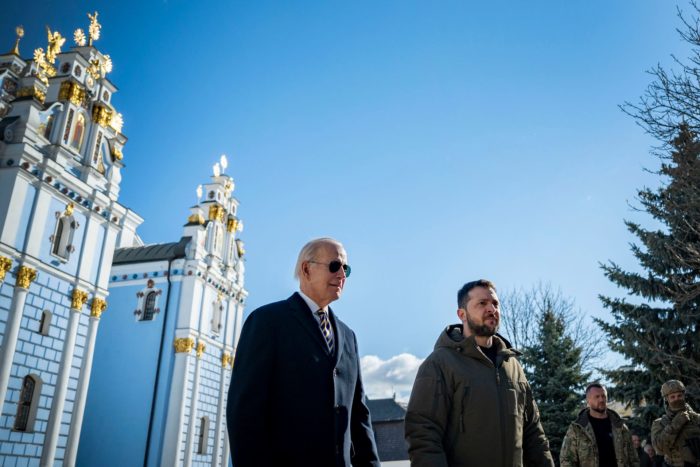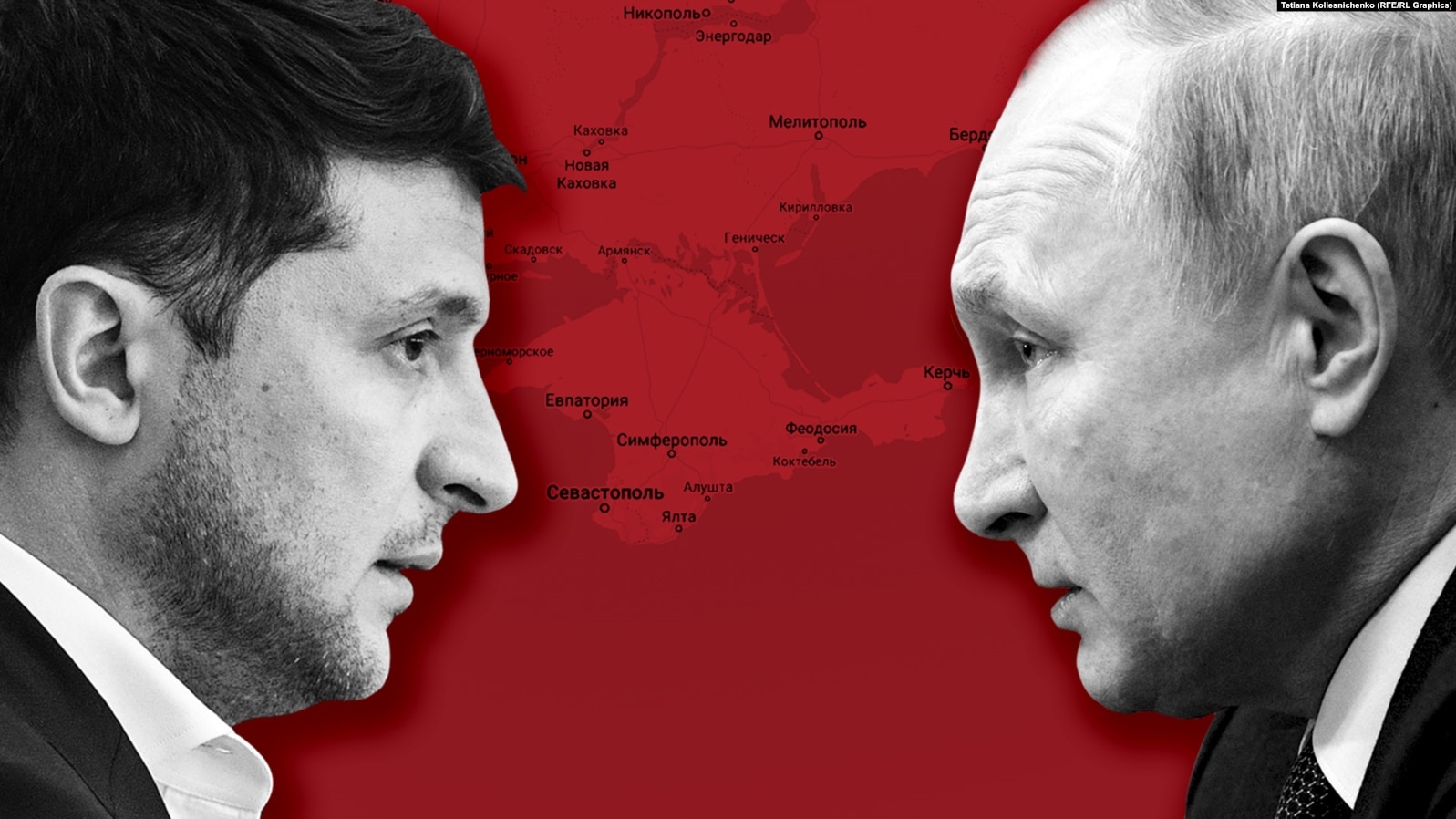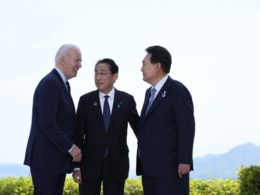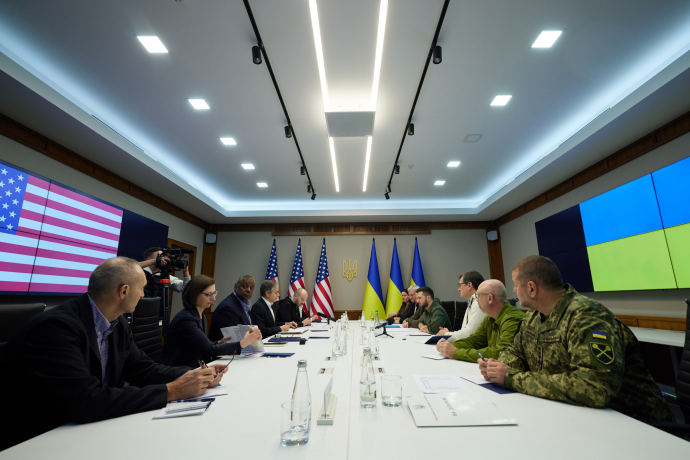What happens when the world's most powerful democracy extends an olive branch to an authoritarian regime that only respects thorns?
President Donald Trump is now following the same path as his predecessor, President Barack Obama. The irony is unmistakable: Trump harshly criticized Obama's Russia policy, yet is now replicating it. Since taking office, Trump has held several undisclosed calls with Vladimir Putin.
Following these conversations, he began echoing Kremlin talking points about Ukraine—claiming Putin was justified in his invasion because of fears about NATO expansion, despite this narrative being repeatedly debunked by security experts.
This pattern of reset and appeasement isn't new—and its consequences extend far beyond Ukraine.
Trump's campaign promise to end the war in Ukraine within 24 hours has collided with a harsh reality: resolving conflicts with dictators isn't achieved through personal relationships or closed-door meetings. His assurances that he could leverage his "good relations" with both Zelensky and Putin have proven hollow. After his inauguration, it became apparent his team had no coherent plan for ending a war that has claimed thousands of civilian lives and displaced millions.
The "Russia reset trap": from Obama to Biden to Trump
The first warning sign appeared in 2008, when Russia launched its war against Georgia—the first blatant violation of the post-World War II order cemented by the Helsinki Accords of 1975, which guaranteed the inviolability of state borders. The democratic world's tepid response emboldened Putin.
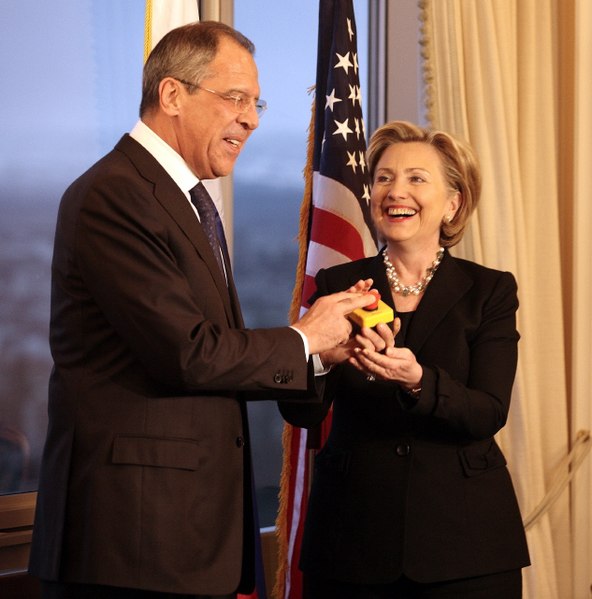
The Obama administration's approach to Russia set a dangerous precedent. President Obama, who came to power a few months after the end of the 2008 war in Georgia, instead of punishing the offender Moscow, arranged a reset with it.
Then Russian President Vladimir Putin realized: he can do whatever he wants, and nothing will happen to him for it. And in Kyiv, the most perceptive said: "Ukraine will be next."
In 2009, then-Secretary of State Hillary Clinton presented her Russian counterpart with a symbolic "reset" button aimed at improving relations.
President Obama sought a fresh start with Moscow, believing engagement could transform Putin into a responsible international partner. Within five years, Russian troops had occupied Crimea and initiated conflict in Donbas.
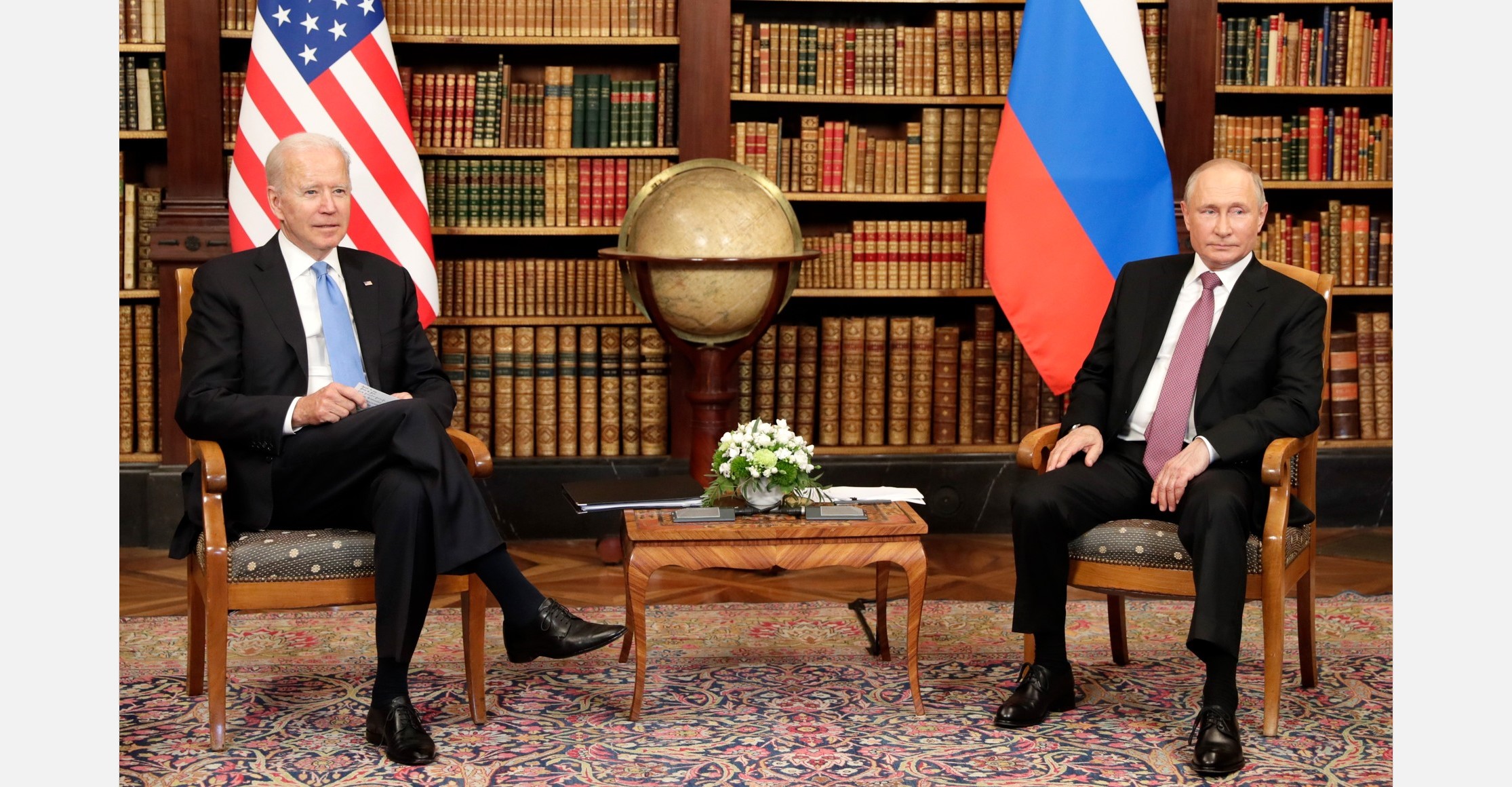
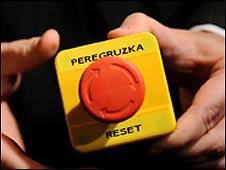
In 2021, President Biden met Putin in Geneva, seeking a "stable, predictable relationship." Eight months later, Russian tanks rolled toward Kyiv in a full-scale invasion.
What's happening today with Trump follows this dangerous historical pattern of reset and appeasement. The specifics change, but the outcome remains remarkably consistent: diplomatic "resets" with Russia since 2000 have repeatedly been followed by territorial aggression.
Each time Western leaders prioritize diplomatic nicety over strategic reality, Putin interprets it as permission to advance his imperial ambitions.
What I witnessed in Georgia
Standing on the outskirts of Tbilisi in August 2008, I watched Georgian civilians evacuate as Russian tanks approached unopposed, just 20 miles away. The small Georgian army had collapsed against Russia's military might. The road to Georgia's capital lay open.
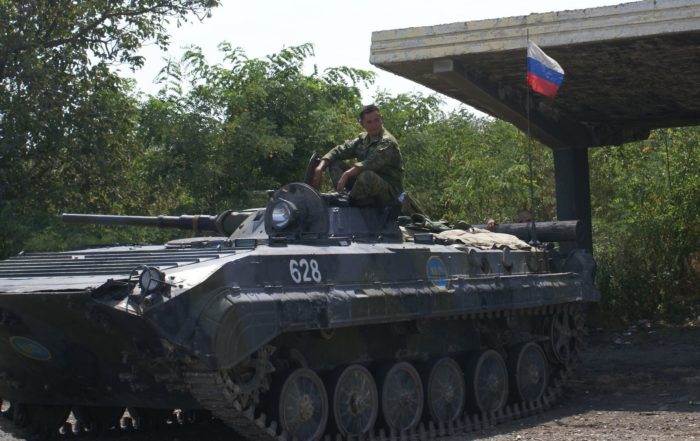
What stopped this advance wasn't diplomacy or concessions.
It was the sudden appearance of the USS McFaul, an American destroyer whose missile systems could neutralize Russian forces in minutes. Within 24 hours, Moscow's troops halted their advance.
This moment revealed a truth that Western leaders repeatedly forget: Putin responds to demonstrated strength, not diplomatic overtures.
The domino effect for global security
Why should Americans care about Ukraine? Because China is watching—carefully.
Chinese state media has significantly increased its coverage of Western responses to the Ukraine crisis, with each analysis emphasizing a central question: does the West stand firmly with its allies when challenged by authoritarian powers?
The precedent being set in Ukraine will directly shape Taiwan's security—and, ultimately, America's economic and military position in the Pacific for decades.
North Korea, Iran, and other authoritarian regimes are similarly taking notes. When democracies falter in defending international rules, the emboldening effect ripples globally. Security experts have long identified this perception of weakness as a contributing factor to aggressive actions against American interests worldwide.
Beyond partisan politics
This isn't about Democrats versus Republicans. Trump once criticized Obama's Russia policy as weak and ineffective, yet now follows the same reset approach. Both parties have fallen into this trap.
It's about recognizing a clear historical pattern: when dealing with authoritarian regimes that only respect power, strength creates the conditions for meaningful diplomacy—not the other way around.
President Bush demonstrated this in Georgia in 2008. Even as Trump claims to value strength and toughness in international affairs, his approach to Russia contradicts these very principles—replicating the Obama-era reset that he once condemned.
The pattern extends beyond American shores. Key European leaders, particularly in Germany and France, erected barriers to Ukraine's NATO and EU aspirations in 2008, choosing appeasement over principle. They acted to placate Russia, which was determined to maintain control over Ukraine. This collective Western failure to stand firm against Putin's first territorial grab laid the groundwork for his escalating aggression.
The path forward
The data points to a specific path: when the West has imposed real costs on Russian aggression—whether through sanctions that targeted Putin's inner circle in 2014 or through providing advanced defensive weapons to Ukraine in 2022—Russian advances have slowed or stopped.
Concrete strength, not abstract goodwill, creates the negotiating leverage needed for genuine peace.
For Ukrainians like myself who have documented Russia's actions since 2014, Trump's demand that Ukraine hold elections during wartime is particularly troubling. It mirrors Putin's own talking points about President Zelensky's legitimacy, while ignoring that Ukraine's constitution explicitly prohibits elections during martial law.
Such elections would create precisely what Putin wants: internal division and vulnerability at a critical moment. Even Ukrainians who disagree with Zelensky's policies—myself included—recognize that wartime elections would destabilize the country, potentially leading to mass unrest. This internal weakness would provide Putin with exactly the opportunity he seeks to strike with redoubled force.
Concrete strength, not abstract goodwill, creates the negotiating leverage needed for genuine peace.
Most alarming is that Trump, who should be the decisive leader of the free world, capable of distinguishing good from evil, has barely uttered a critical word about Putin's bloody aggression. Instead, he has promised Moscow negotiations on restored relations and hasn't dismissed the idea of Russia rejoining the G7.
All that remains is for him to demand Ukraine apologize to Russia.
The lesson history teaches clearly: appeasement doesn't prevent wars—it postpones them, making them larger and deadlier when they eventually arrive. Ending this war requires not concessions to Putin's imperial ambitions, but providing Ukraine with sufficient weapons and support to achieve victory.
Editor's note. The opinions expressed in our Opinion section belong to their authors. Euromaidan Press' editorial team may or may not share them.
Submit an opinion to Euromaidan Press

